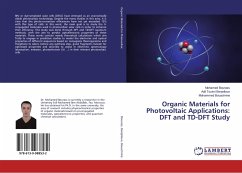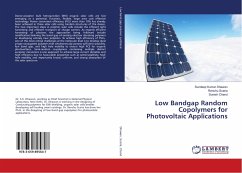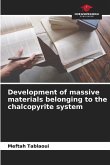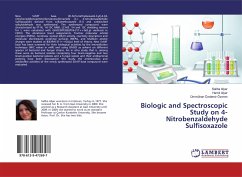BHJ or dye-sensitized solar cells (DSSC) have emerged as an economically viable photovoltaic technology. Despite the many studies in this area, it is clear that the photo-conversion efficiencies have not yet exceeded 12% with this type of cells. In this work, the main goal is to study the pi-conjugated molecules used in photovoltaic solar cells in order to enhance their efficiency. This study was done through DFT and TD-DFT quantum methods, with the aim to predict optoelectronic properties of these materials. These works contain mainly theoretical calculations which aim firstly to engage in predictive studies to model the electronic and optical properties of different sequences based on conjugates thienopyrazine and thiophene to select, before any synthesis step, good fragments include for optimized properties and secondly to assess in electronic spectroscopy (absorption, emission, photoelectron UV, ...) in their relevant photovoltaic cells.
Bitte wählen Sie Ihr Anliegen aus.
Rechnungen
Retourenschein anfordern
Bestellstatus
Storno








